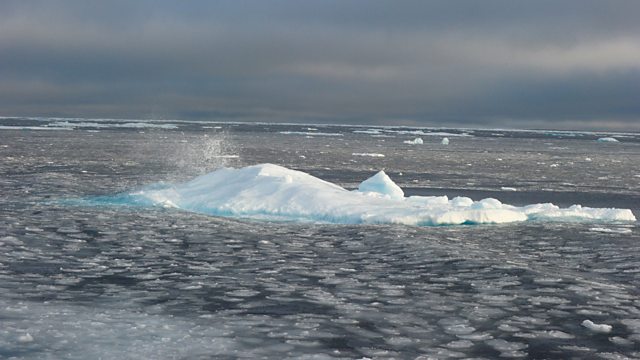
Antarctic Ice Sheet Instability
New models show that Antarctic ice sheet loss may be overestimated; Groundwater; FGM; Google’s Autonomous Car; Problems of Developing Drugs; History of the Gyroscope
Scientists in England and France have collaborated to identify the key constraints which could lead to inaccuracies in previous models of potential sea-level rise from the Antarctic ice-sheet. Their updated model suggests that the rise in sea-levels by 2100 could be just 30cm as opposed to the worst case scenario calculations of 1m from previous studies. The research is published in the journal Nature and co-author Dr Tasmin Edwards, from the Open University in the UK, explains the research to Jack Stewart.
Groundwater
The Earth’s groundwater has been quantified. It is estimated to be 23 million cubic km (which is equivalent to the Earth's entire land surface covered in a layer some 180 metres deep). However, just 6% of the water is available for our use and to take part in the hydrogeological cycle. That small fraction is referred to as "modern" groundwater: it is extractable because it is near the surface, and can be used to supplement above-ground resources in rivers and lakes. But it is also the most sensitive to over use, climate change and to human contamination. Adam Rutherford talks to hydrologist Tom Gleeson who is the lead author of this study published in Nature Geosciences.
Female Genital Mutilation
As part of the Â鶹ԼÅÄ’s 100 Women season, which shines a light on the lives of women around the world, Claudia Hammond talks to the midwife Dr Comfort Momoh, a public health specialist and staunch campaigner against the practice of female genital mutilation. She currently runs the African Well Woman’s clinic at Guys and St Thomas’ hospital in London, which she founded in 1997 to help women who have been subjected to the procedure.
Google’s Autonomous Car Caught Driving Too Slowly
Google has limited the speed of its autonomous cars to 25 mph – used in specified allowable areas. But one car was too slow for a traffic cop who pulled over the driverless vehicle and contacted the remote operators. What does this mean for the state of advance of driverless cars, and how does this relate to the semi-autonomous Tesla cars whom the manufacturers, worried about drivers abusing the technology, have imposed constraints, limiting the functionality. Gareth Mitchell talks to the robotics navigation expert, John Leonard from MIT.
Problems of Developing Drugs
Patrick Vallance is Head of Research and Development at GlaxoSmithKline, one of the world’s largest pharmaceutical companies with annual revenues in excess of 20 billion pounds and nearly a hundred thousand employees worldwide. Since he joined, from academia where he was a professor of clinical pharmacology, he has reshaped the way GSK carries out its research into drug development and has been behind several radical initiatives in global healthcare. Jim Al-Khalili and Patrick Vallance discuss how a company like GSK goes about new drug development.
History of the Gyroscope
Â鶹ԼÅÄ Earth journalist Melissa Hogenboom continues her exploration of the history of the future at the Science Museum in London. This week, she unravels the story of the gyroscope with the help of Curator David Rooney.
(Photo caption: Ice chunks seen in the Amundsen Sea © Clement Sabourin/AFP/Getty Images)
The Science Hour was presented by Roland Pease with comments from Â鶹ԼÅÄ News journalist Melissa Hogenboom
Editor: Deborah Cohen
Last on
More episodes
Broadcasts
- Sat 21 Nov 2015 23:06GMTÂ鶹ԼÅÄ World Service
- Sun 22 Nov 2015 02:06GMTÂ鶹ԼÅÄ World Service Australasia
- Sun 22 Nov 2015 11:06GMTÂ鶹ԼÅÄ World Service except Australasia
- Sun 22 Nov 2015 14:06GMTÂ鶹ԼÅÄ World Service Australasia
- Mon 23 Nov 2015 06:06GMTÂ鶹ԼÅÄ World Service South Asia
Podcast
-
![]()
Unexpected Elements
The news you know, the science you don't

